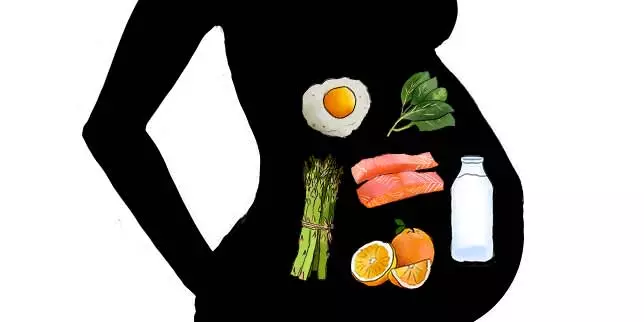Pregnancy is a beautiful journey filled with anticipation and joy, but it is also a time that requires significant attention to nutrition. The early weeks, particularly the first trimester, are crucial for fetal development, and what you eat can greatly influence the health of both mother and child. This article will explore essential nutrients and dietary strategies for navigating the first trimester, ensuring an optimal start for your little one.
It’s easy to fall into the trap of thinking that “eating for two” is a free pass to indulge in whatever cravings may arise. While it’s understandable to want comfort food during this transformative time, it’s vital to focus on a balanced diet that provides adequate nutrients necessary for your baby’s development. From the onset of pregnancy, your body begins adjusting to several physiological changes, requiring a careful approach to what you consume. This is particularly true in the first trimester when critical development occurs, including the formation of organs and neurological structures.
During the first trimester, your caloric needs are not substantially increased; rather, it’s about the quality of food you consume. Emphasizing smaller, frequent meals can help manage common pregnancy symptoms such as nausea and fatigue. This approach not only ensures that you consume nutrient-dense foods but also helps in maintaining stable energy levels throughout the day. Focus on a range of food groups, including lean proteins, whole grains, fruits, and vegetables, to create a well-rounded diet.
1. Folate: One of the most critical nutrients in the first trimester is folate, also known as folic acid. This B vitamin plays a crucial role in preventing neural tube defects in the developing fetus. Foods rich in folate include leafy greens, legumes, and fortified cereals. A daily intake of around 800 mcg is recommended during pregnancy.
2. DHA (Docosahexaenoic Acid): An essential omega-3 fatty acid, DHA is vital for the development of the fetal brain and eyes. Expecting mothers should strive for at least 200-300 mg of DHA daily, which can be obtained from fatty fish like salmon and fortified eggs. Incorporating these foods into your diet helps ensure that your baby receives the necessary nutrients for cognitive growth.
3. Iron: As blood volume increases during pregnancy, so does the need for iron. This mineral is essential for oxygen transport and overall maternal health. Pregnant women should aim to consume anywhere from 27 to 30 mg of iron daily, which can be sourced from red meat, beans, and fortified grains. Pairing iron-rich foods with vitamin C from fruits or vegetables can enhance absorption.
4. Zinc: This mineral is often overlooked but plays an important role in cell growth and the immune system. Pregnant women require about 11 mg of zinc each day. Nutrient-rich sources include meat, dairy products, and whole grains.
Vitamins A and D are pivotal during the early stages of pregnancy. Vitamin A supports the development of the organs and the immune system, while Vitamin D plays a role in bone health and cellular function. Foods such as milk, eggs, and orange and green vegetables can help provide these essential nutrients. Keeping a varied diet allows you to secure the vitamins needed while also supporting your wellness and that of your baby.
Navigating the dietary landscape during pregnancy may present challenges, particularly with morning sickness and dietary aversions. However, focusing on nutrient-dense foods and maintaining well-planned meals can streamline this journey. Engaging in mindful eating – paying attention to hunger cues and opting for nutrient-rich options – can help fulfill your body’s needs better than unmonitored snacking.
In the beautiful journey of pregnancy, understanding nutritional needs, being focused on what merits your plate, and advocating for your health and that of your baby can lay a solid groundwork for a healthy future. As you navigate the demands of pregnancy, embracing these dietary choices will empower both mother and child throughout the nine-month journey and beyond.
Remember that pregnancy is not only a time of nurturing new life but also an opportunity to cultivate healthier habits that can last a lifetime. With the right nutritional choices, you can support a thriving and vibrant pregnancy experience.

